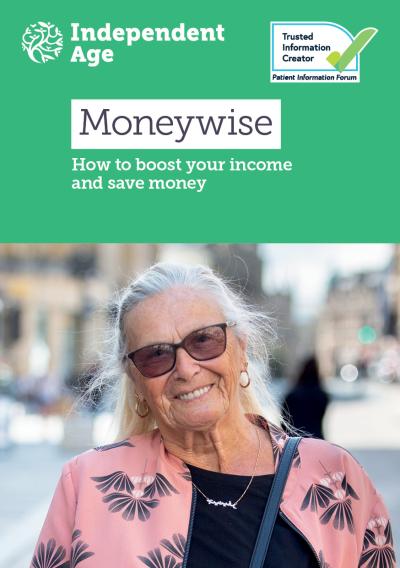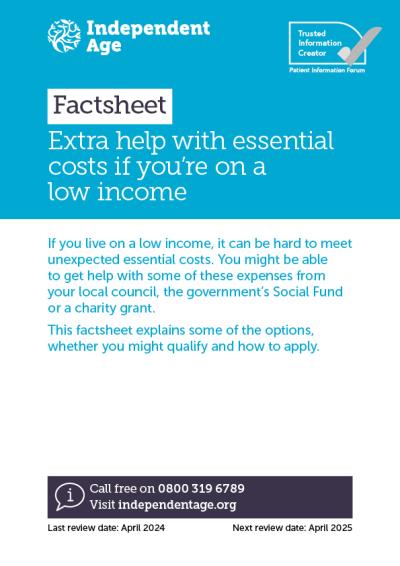Related publications

Moneywise

Debt can happen to anyone and for all sorts of reasons. If debt is becoming a problem for you, you’re not alone. Although it can be difficult to pay back what you owe, there is help available.
It’s never too late to sort out your debts and find support. It’s a good idea to start by getting organised. Gather any letters or demands you’ve received and make a list of the details of each of your debts – for example:
Some debts are more urgent than others because they can have serious consequences – for example, you could lose your home if you don’t pay your rent or mortgage. These are called priority debts and you need to deal with them first. Visit our webpage to learn more about different types of debt. You may want to get help from an advice service to work out which debts to deal with first.
Contact your local Citizens Advice if you need help urgently – for example, if you’re being taken to court for a debt, or you’re being evicted for rent or mortgage arrears. You can also contact Shelter for urgent advice if you're facing eviction or repossession.
If you’re unsure how to deal with your debts or you’re feeling overwhelmed, there’s plenty of support available. You can get free, confidential, impartial debt advice from charities and other organisations, such as:
You can also find contact details for debt advice agencies near you on the MoneyHelper website.
Depending on your situation, debt advisers can:
As well as phone helplines, many of these services also have webchat options – it can be difficult to speak about debt, so think about what you would prefer.
In England and Wales, you may be able to get temporary protection from interest, charges or court action, through the government’s Debt Respite Scheme, known as Breathing Space. A breathing space lasts for up to 60 days. Your creditors shouldn’t contact you during that time. If this scheme is right for you, you’ll need to apply through a debt advice service.
In Scotland, you may be able to agree a moratorium period, which is similar, for up to six months. You can only get this if you have received debt advice and are considering a debt solution, such as bankruptcy or a Trust Deed.
If you need support, always seek specialist advice first. It can be tempting to go to loan sharks for help with debt, but this can be dangerous and make your problem worse.
Loan sharks are unlicensed moneylenders, who often target people struggling financially. If you have borrowed from a loan shark or want to report them, call the government’s confidential hotline.
Make sure you’re claiming all the benefits you’re entitled to. Our benefits calculator can help you work out what you may be able to claim. Or call our free Helpline and arrange a benefits check with an adviser.
If you have an unexpected cost because of an emergency or crisis, you might qualify for help from your local council through their welfare assistance scheme or household support fund.
You may be able to claim an interest-free Budgeting Loan or a Budgeting Advance from the government to cover some costs if you're getting certain benefits. Find out more on our webpage Extra support with the cost of living if you're on a low income.
For more information about support with the cost of living, visit the government’s Help for Households website.
If you’re having trouble paying your fuel bills, contact your energy supplier. They must help you to work out a solution, such as a payment plan. Some suppliers also offer grants to help you pay off your energy debts. Read our webpage Managing your energy bills for more information.
You may also be able to get help from charities that offer grants.
Don’t be tempted to get a payday loan or use credit cards to pay off your debts. These are short-term solutions and can make the problem worse.
Some companies may offer to help you sort out your debts for a fee. But you’d be better off spending that money on paying off your debts. Use the free, independent debt advice services instead.
You could save money by choosing a bank account that better suits your needs. See MoneyHelper for advice on opening, switching or closing a bank account.
Money worries can make you feel stressed and anxious, which in time may affect your mental health. Visit Mind's website for advice on coping with money worries.
For practical advice on ways to deal with debt, visit the Mental Health and Money Advice website. In England and Wales, you may be able to get a Mental Health Crisis Breathing Space while you’re getting treatment for a mental health crisis and for 30 days afterwards.
For general ways to care for your mental health, see our page Looking after your mental health.
If you can, try to find ways to reduce your regular living costs to save money. For example, you could:
Visit our Saving money webpages for more information. Our free Moneywise guide also has suggestions for ways to boost your income.
Use a budgeting tool to help you work out your spending and where you might be able to save money. You can find them at:

If you need help to get your finances back on track or to deal with ongoing debts, contact a free debt advice service, such as:
You can also search for free debt advice agencies in your area on the MoneyHelper website.
Call our Helpline on 0800 319 6789 for a free benefits check.